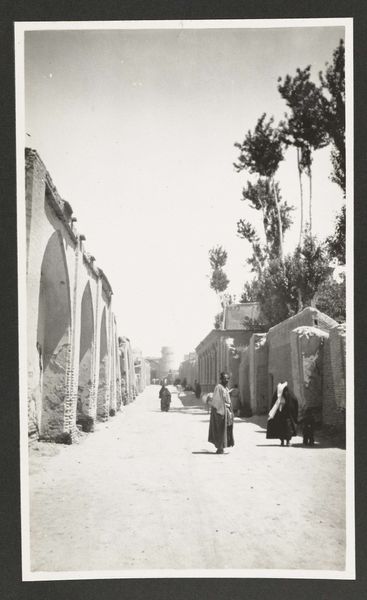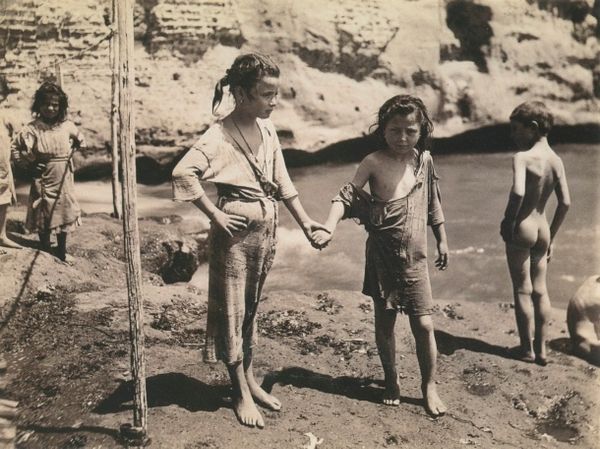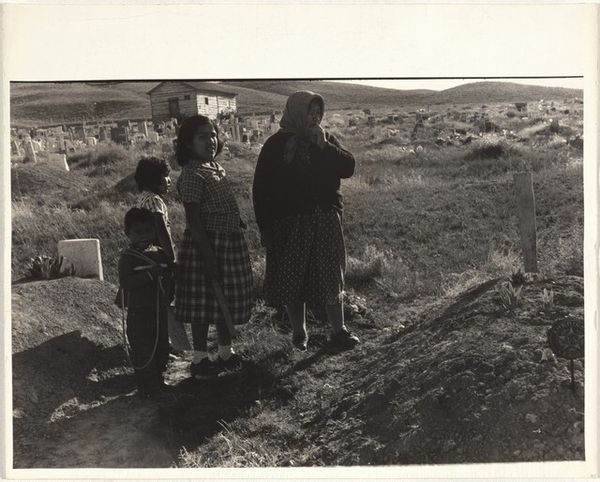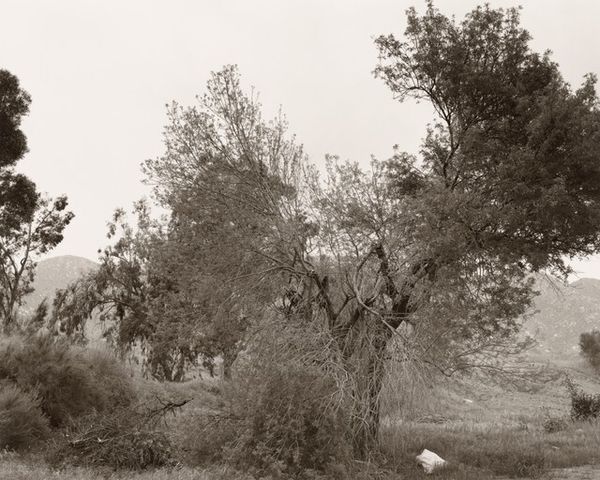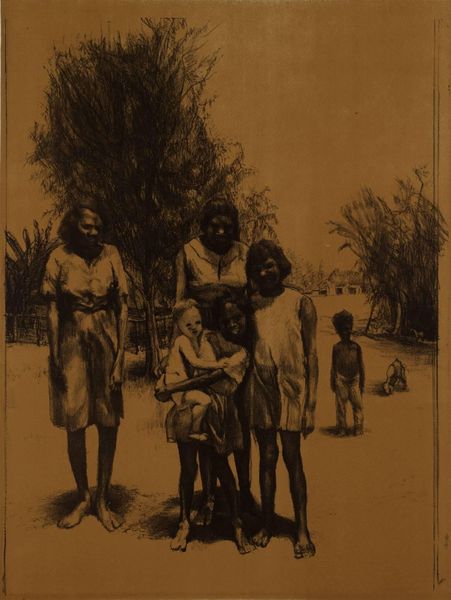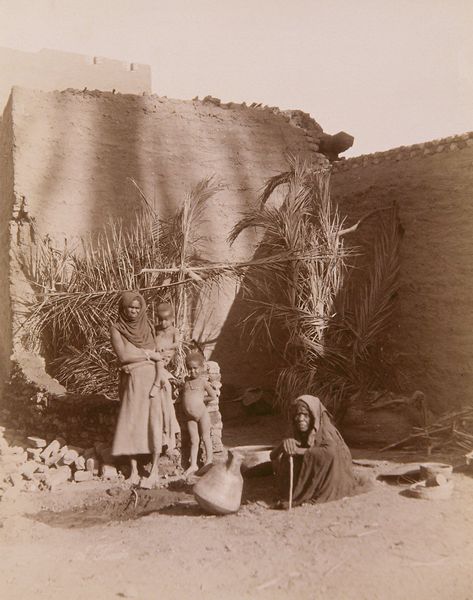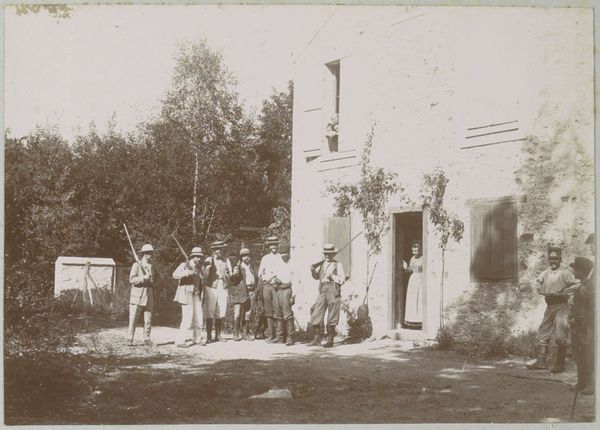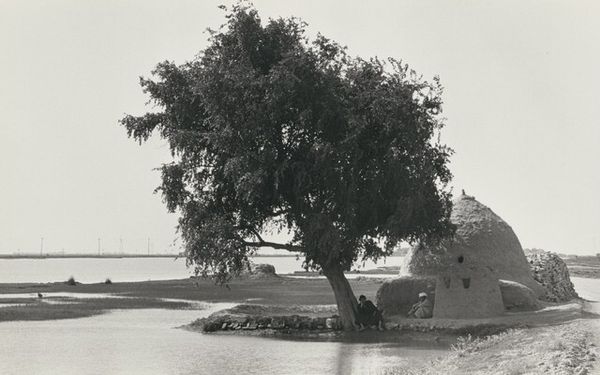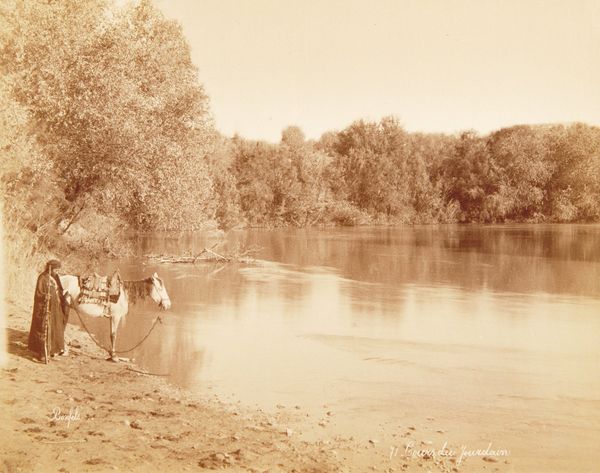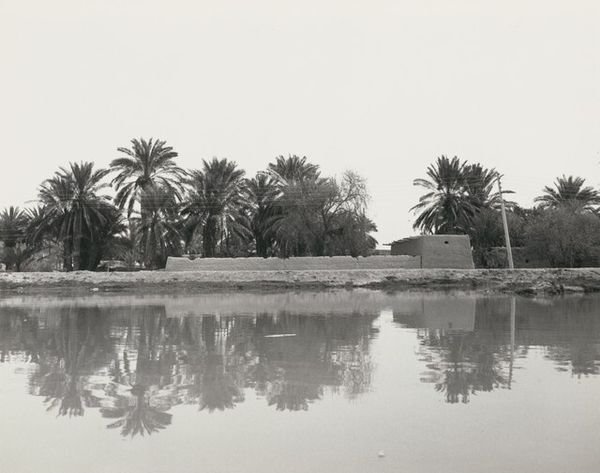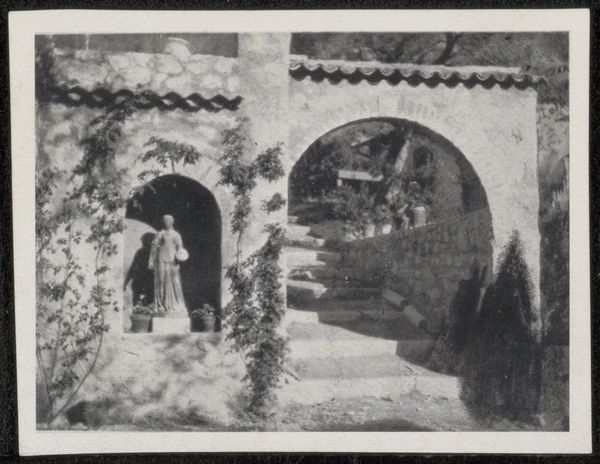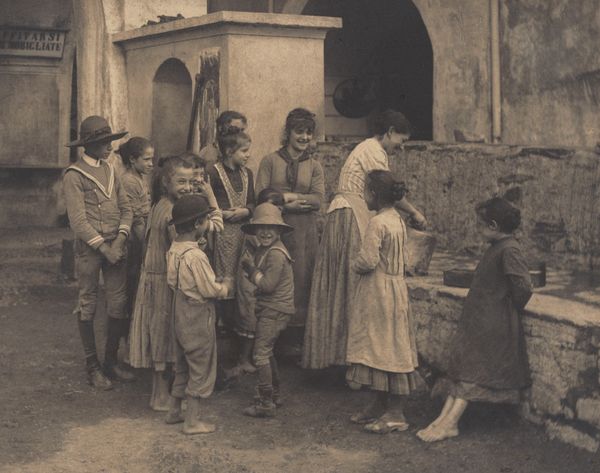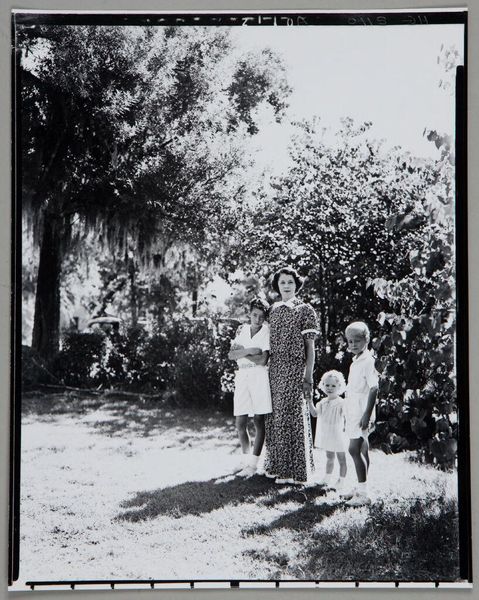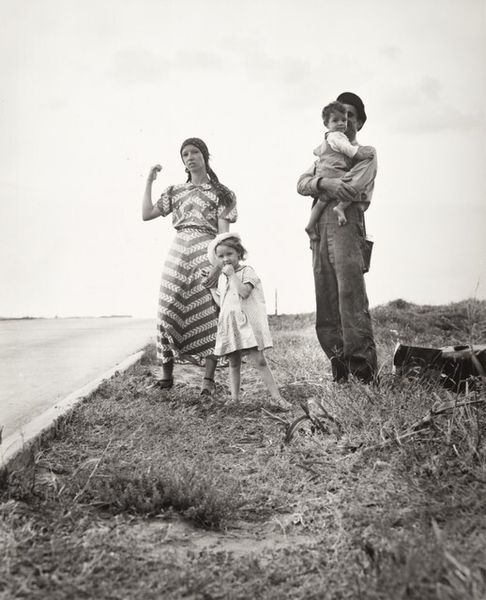
photography, gelatin-silver-print
#
portrait
#
black and white photography
#
landscape
#
black and white format
#
social-realism
#
photography
#
black and white
#
gelatin-silver-print
#
monochrome photography
#
genre-painting
#
monochrome
#
monochrome
Dimensions: image/sheet: 20 × 30.4 cm (7 7/8 × 11 15/16 in.)
Copyright: National Gallery of Art: CC0 1.0
Editor: This is an untitled black and white photograph by Ursula Schulz-Dornburg, taken in 1980. It’s a rather understated image, a seemingly candid shot of figures near a waterway. I’m immediately drawn to the figures standing still amid a bustling background, though—What catches your eye in this piece? Curator: Oh, absolutely. It's as though we’ve stumbled upon a forgotten scene. For me, it's that sliver of daily life that’s both intensely specific and universal. The grainy texture of the gelatin silver print lends it a nostalgic aura, almost like a memory struggling to stay afloat. I keep wondering, what stories do these silent figures carry? Are they waiting, watching, simply existing within this landscape? What does it whisper to you? Editor: It feels like a study in contrasts - the permanence of the photograph capturing a fleeting moment. The light and shadow create depth and a slightly dreamlike feel. I feel like an outsider looking in, separated by time. Is that a fair feeling to have with documentary photography? Curator: Beautifully said! Photography, particularly documentary-style work like this, often treads that line. Schulz-Dornburg isn't just recording; she's subtly inviting us into a shared human experience. You feel like an observer *because* you are. Yet, isn't there a pang of connection, a sense of recognizing something deeply familiar in their stillness? Editor: I think there is. That tension between observation and connection makes it more engaging. I initially saw it as a simple scene, but now it’s richer with possibility. Curator: Precisely. The photograph holds open the possibility of multiple stories and perspectives—and, really, isn't that what makes art endlessly fascinating? Editor: It absolutely is! I'll definitely carry this idea with me, as I study art history.
Comments
No comments
Be the first to comment and join the conversation on the ultimate creative platform.
